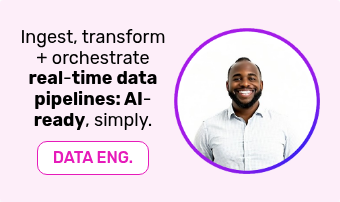In the dynamic arena of industrial IoT and IoT platforms more broadly, scalability and flexibility are not just advantageous; they are essential.
As businesses evolve and their needs diversify, being tethered to single-use, inflexible IoT solutions can stifle growth and innovation.
The shift towards multipurpose platforms represents a paradigm change, offering industries the adaptability they require to not just survive but thrive. Hybrid iPaaS, Data, ETL, IoT, Workflow Automation, AI, BI + PaaS platforms (like the Rayven Platform) epitomise this shift, providing a versatile foundation that accommodates a broad spectrum of IoT applications and operational technologies, all whilst adding machine learning and automation functionality to legacy systems in the process, expanding their reach across multiple sites.
Limitations of Single-Use Solutions.
Traditionally, many industrial IoT solutions have been designed with a narrow focus, addressing specific needs or applications. While effective in their designated roles, these single-use solutions present several limitations as businesses seek to expand and adapt:
- Lack of Versatility: Single-use solutions often cannot be repurposed or adapted for different applications, limiting their long-term utility.
- Integration Challenges: Integrating these solutions with other systems or technologies can be problematic, creating data silos and operational inefficiencies.
- Scalability Issues: As businesses grow, these solutions may struggle to scale accordingly, requiring additional investments in new technologies.
In an era where industrial needs are constantly changing and technology is rapidly evolving, the limitations of single-use IoT solutions become increasingly apparent.
The Advantage of Scalable, Multipurpose Platforms.
The transition to multipurpose hybrid platforms, like Rayven Platform, marks a significant leap forward in industrial IoT. These platforms are designed to offer the flexibility and scalability that modern industries require.
- Flexibility in Application: full-stack, low-code platforms are not restricted to a single purpose. They can be configured for a variety of applications, from monitoring and controlling industrial processes to integrating AI for predictive analytics. This flexibility allows businesses to repurpose the platform for different needs as they arise, all within the same instance.
- Seamless Integration with Existing Systems: A key advantage of a multipurpose platform is its ability to integrate smoothly with existing technologies. This integration capability means that businesses can leverage their current investments while expanding their IoT capabilities, ETL and spreading the results of real-time data analysis across industrial technology ecosystems, ensuring a cohesive and efficient operation.
- Scalability for Future Growth: As businesses grow and their needs evolve, integrated platforms scale accordingly. This scalability ensures that businesses can expand their IoT capabilities without the need for constant reinvestment in new technologies.
Success Stories.
The practical benefits of shifting from single-use to multipurpose, hybrid platforms are evident in the success stories of businesses that have made this transition.
- Case Study 1: An example from the manufacturing sector, where a company used Rayven's platform to initially monitor equipment efficiency. Over time, they expanded the platform's use to include predictive maintenance and energy management across multiple sites, significantly reducing downtime and operational costs.
- Case Study 2: In the logistics industry, a business initially deployed Rayven's platform for fleet tracking. As their needs evolved, they integrated supply chain management and real-time delivery optimisation, enhancing their service quality and efficiency.
The move towards flexible, scalable, multipurpose iPaaS, Data, Workflow Automation, ETL, IoT, AI, BI + PaaS platforms is a game-changer for industries looking to harness the full potential of IoT technology.
The Rayven Platform stands out as a leading solution in this space, offering businesses the versatility, integration capability, and scalability they need to adapt and grow in an ever-changing technological landscape. By embracing such platforms, industries can ensure they are not just equipped for today's challenges but are also future-proofed for tomorrow's opportunities.





















